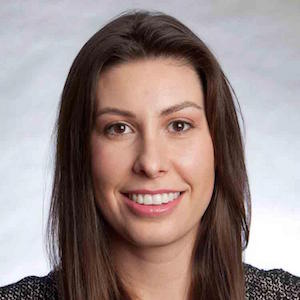The most robust conversations about the future of journalism will be led by thoughtful marketing professionals. And the best of their efforts will yield valuable results because they understand the news product and the audience not as two separate entities but as parts of a symbiotic pro-social relationship.
Here’s why that matters.
 From an October report from the Pew Research Center, we know that 57 percent of adults are interested in government and politics. The good news is this beats the 44 percent who are interested in entertainment and celebrities.
From an October report from the Pew Research Center, we know that 57 percent of adults are interested in government and politics. The good news is this beats the 44 percent who are interested in entertainment and celebrities.
But here’s the troubling part: When asked what three topics they are most interested in, only 36 percent put government and politics in their top three. And worse, there’s evidence that some — perhaps most — of those people are lying.
Researchers refer to this phenomenon as social desirability bias. Some people are inclined to overreport prosocial behavior, such as being mostly interested in government and politics, and underreport undesirable behavior — say watching reality television. George Gallup, the grandfather of political polling, detected the influence of this bias on the news industry in the 1920s when he was a University of Iowa doctoral student. “In no single instance did those who said they had read all of the paper actually read more than forty per cent,” Gallup wrote in his dissertation.
So it’s not just that they all lied — they lied big.
Gallup’s work served as a lens into the future of the pulls on the news business. “All means of entertainment — the radio, the moving picture show, the automobile — which take the time ordinarily devoted by a reader to his paper, are competitors of the paper,” he wrote. In the 75 years since, we’ve added a host of other distractions — hello Facebook, YouTube, and reality television — to the list.
In addition, the cognitive burden involved in following a governmental or political issue can be substantial.
In research conducted by Vivian Vahlberg and myself, with funding from the Chicago Community Trust, the Knight Foundation, the McCormick Foundation, and the Woods Fund of Chicago, we know in Cook County, Illinois — home to the epicenter of Chicago and its politicians’ malfeasance — 49 percent of adults felt like they had enough information about candidates or issues to vote in 2010. Of course, that figure is likely inflated too. We also found evidence of what we called “significant personal distress in dealing with the news.” Almost half of adults said they feel overwhelmed by the amount of information available to them. In the same study: 41 percent said they have a hard time telling what news in important; 40 percent said they don’t have time to keep up with the news; and one quarter said they find the news difficult to understand.
Many news organizations have chosen to ignore evidence such as this. Anecdotal evidence with regard to the manner in which people, especially millennials, consume news is oft discussed in newsroom — the ability to create and share content, the differential meaning of likes, shares, and comments; and the satisfaction of individual preferences by selectively consuming (or not consuming) media. But too many journalism organizations have neglected the abundance of data and retreated in one of two disappointing ways. They’ve either retrenched into the “we’re going to tell you what we want because we know better” mindset — or they’ve cut a substantial amount of their news coverage in trade for softer stories.
Today, smaller players in the media marketplace such as Vice News, theSkimm, AJ+ (for which I have done audience consulting), Vox, and the Young Turks should be applauded, even if you don’t like them. Yes, they have definitive tones and the niching of media is much maligned. The truth is that media audiences have always self-selected. These brands are connecting with their audiences (in these cases millennials) and discussing news in approachable, engaging ways.
Local television stations and newspapers, cable stations, news magazines, websites, and apps should embrace this audience-centric perspective. We need them to tell important stories from a perspective about which the audience cares and in a manner which enraptures them.
What we need this election cycle (because there’s no risk in predicting that coverage of the 2016 presidential election will ramp up in the next year) and in future ones are well trained, ethical journalists who embrace a deep understanding of their audiences under the guidance of thoughtful marketing professionals who use consumer data, theory, and experience to inform their insights. Overcoming the cognitive burden felt by news consumers is not marketing in the pejorative sense. It’s journalism, in the mold of the best of the Fourth Estate.
Rachel Davis Mersey is an associate professor at Northwestern University’s Medill School of Journalism, Media, Integrated Marketing Communications.